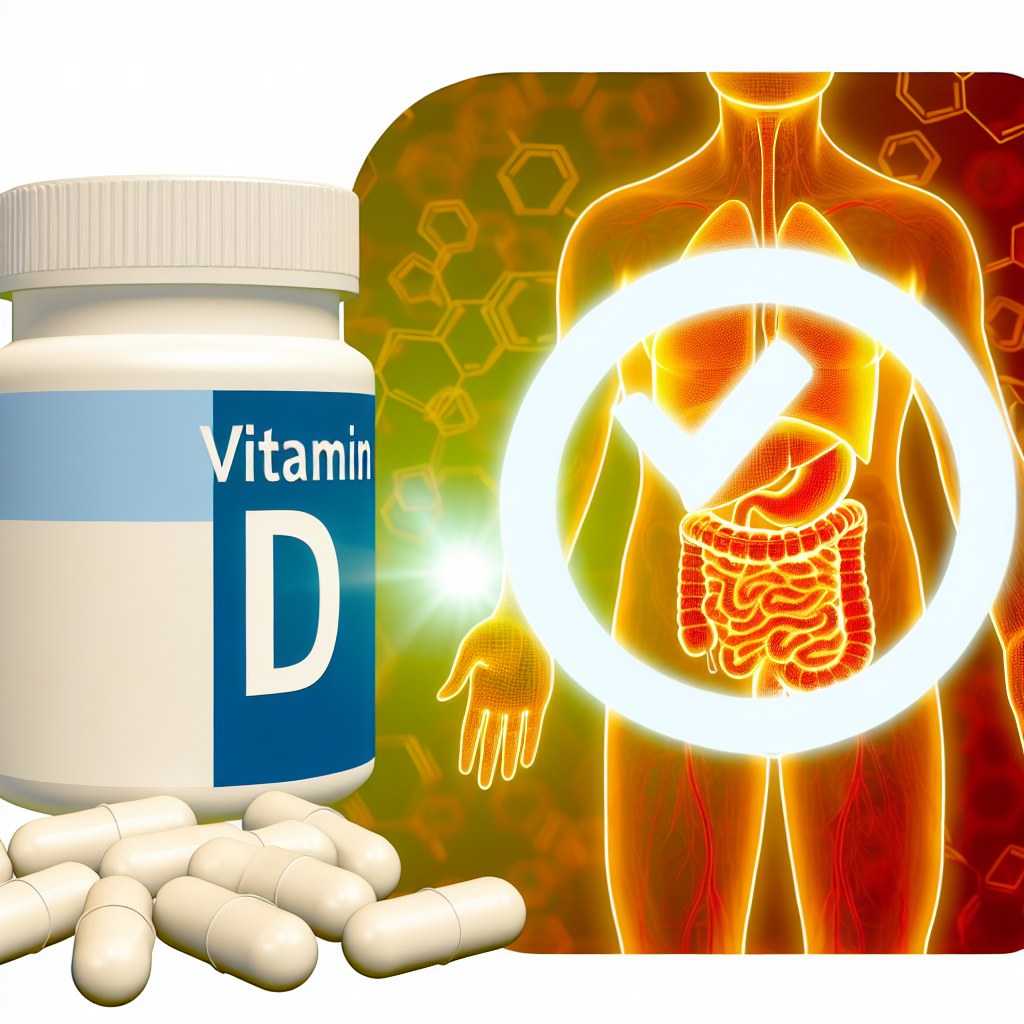Vitamin D, widely known as the "sunshine vitamin," plays a crucial role in keeping your bones strong, boosting immunity, and supporting overall health. But like many health supplements, questions about side effects occasionally arise—particularly concerning digestion. One common concern is whether vitamin D could be responsible for constipation.
In this article, we’ll break down the connection between vitamin D and digestion, look at the science, and give you practical tips to enjoy the benefits of vitamin D without gut troubles.
What Makes Vitamin D So Important?
Vitamin D is far more than a simple nutrient—it’s essential for your body to absorb calcium, which helps maintain healthy bones and teeth. Beyond its role in skeletal health, vitamin D contributes to immune system function, mood regulation, and even cardiovascular stability.
While sunlight helps your body produce vitamin D naturally, many people struggle to maintain sufficient levels due to limited sun exposure, dietary restrictions, or other health factors. To bridge the gap, vitamin D supplements have become increasingly popular. However, for some, digestive side effects like constipation may accompany supplementation, raising questions about the nutrient’s impact on gut health.
Common Side Effects of Vitamin D Supplements
Vitamin D is generally safe when taken in recommended amounts, typically 600–800 IU per day for adults. However, excessive doses—or supplementation without balancing other nutrients—can sometimes lead to mild side effects. These may include:
- Headaches
- Nausea
- Fatigue
- Digestive discomfort, such as bloating or constipation
While uncommon, digestive issues linked to vitamin D supplementation are often due to indirect factors rather than the vitamin itself. Let’s explore why this might happen.
Can Vitamin D Cause Constipation?
Although vitamin D isn’t typically a direct cause of constipation, it can contribute to digestive changes in certain situations. Here are three key reasons:
1. Calcium Absorption Can Impact Digestion
One of vitamin D’s main functions is to boost calcium absorption. While calcium is essential for healthy bones, excessive levels in the bloodstream (a condition called hypercalcemia) may lead to digestive disruptions, including hard stools and constipation. This imbalance can occur when vitamin D causes your body to absorb more calcium than it needs.
2. Low Magnesium Levels May Play a Role
Magnesium is a crucial mineral for smooth digestion, and vitamin D relies on magnesium to activate properly in the body. Without enough magnesium, you may experience slower bowel movements or irregularity. Simply put, when magnesium levels are inadequate, vitamin D supplementation may indirectly lead to constipation.
3. Lifestyle and Diet Factors Matter
Sometimes, constipation isn’t directly caused by vitamin D itself. Poor dietary fiber intake, dehydration, or a sedentary lifestyle might be at play. Introducing a new supplement, like vitamin D, could make these existing factors more noticeable, giving the vitamin undeserved blame.
5 Simple Tips to Prevent Constipation While Taking Vitamin D
If you’re concerned about constipation after starting a vitamin D supplement, try incorporating these easy strategies into your routine:
- Stick to Recommended Doses: Avoid exceeding the standard daily dosage of 600–800 IU for adults without medical supervision. Higher doses can increase the risk of calcium-related digestive side effects.
- Pair Vitamin D With Magnesium: Include magnesium-rich foods like spinach, almonds, and seeds in your diet. Magnesium counterbalances calcium absorption and promotes regular bowel movements.
- Hydration Is Key: Dehydration can make stools harder to pass. Make sure you’re drinking at least eight glasses of water daily to keep your digestion running smoothly.
- Add Fiber-Rich Foods: Boost your intake of whole grains, fruits, vegetables, and legumes. Fiber supports gut health and helps prevent constipation.
- Take Vitamin D With Food: Supplements are often better absorbed when taken with meals, especially those containing healthy fats. This practice can also reduce the likelihood of stomach discomfort.
When Should You Talk to a Doctor?
Most instances of constipation linked to vitamin D supplementation improve with simple dietary and lifestyle changes. However, if symptoms persist despite your efforts, it might be time to consult a healthcare provider.
Your doctor can assess whether your dosage is appropriate, check for nutrient imbalances such as magnesium deficiency, or investigate underlying digestive conditions that may be contributing to the issue.
If you notice severe signs like abdominal pain, rectal bleeding, or prolonged constipation, seek immediate medical attention. These symptoms could indicate a more serious health concern that requires treatment.
Final Thoughts
Vitamin D is a cornerstone of good health, delivering benefits for your bones, immunity, and mood. Constipation is rarely a direct consequence of vitamin D supplementation, but factors like calcium excess, magnesium deficiency, or lifestyle patterns can occasionally amplify digestive discomfort.
The good news? Minor adjustments like staying hydrated, eating fiber-rich foods, incorporating magnesium, and maintaining proper supplementation levels are often enough to prevent or resolve constipation. For ongoing issues or concerns, never hesitate to seek professional medical advice.
When approached mindfully, vitamin D can be a powerful ally in your journey toward better health—without compromising your gut.
